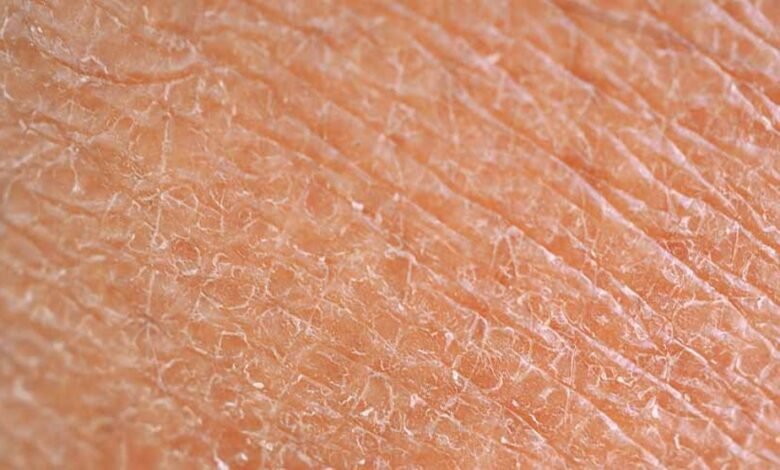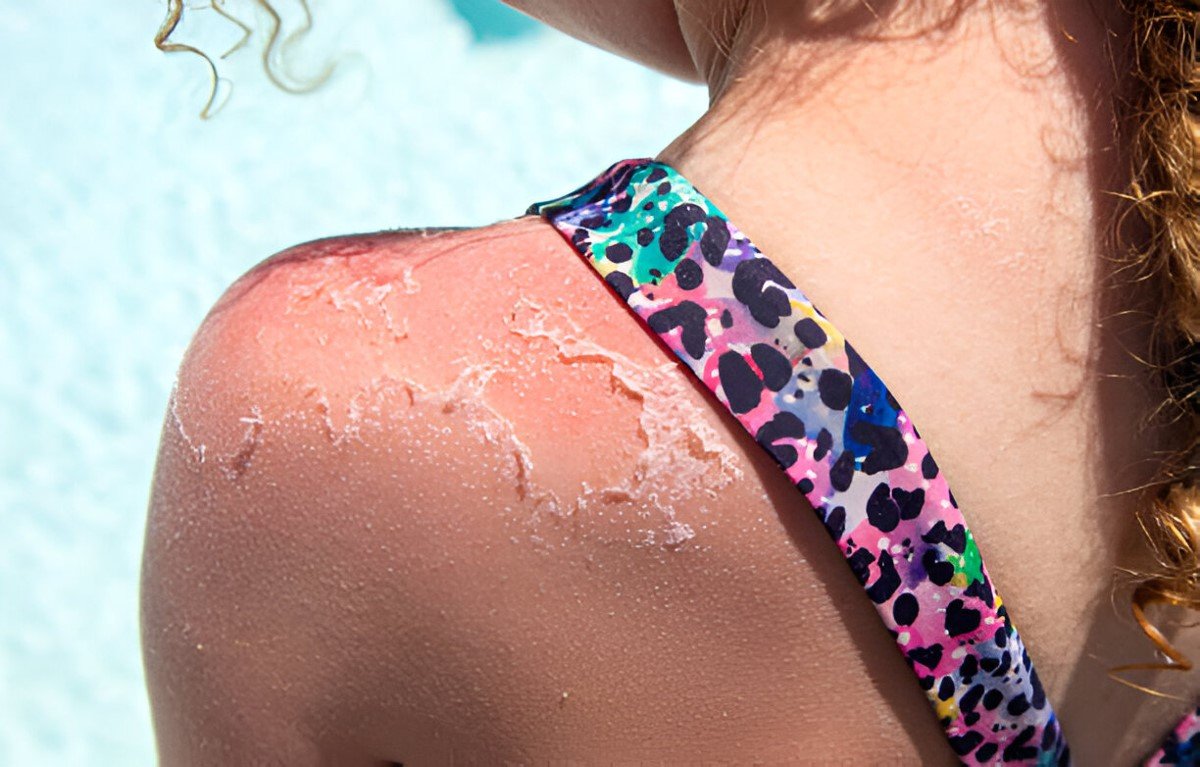Why Your Skin is Dry: Here’s is Top 6 Reason
Dry skin, also known as xerosis, is a common condition that affects many people, particularly as the seasons change or as we age.

Dry skin, also known as xerosis, is a common condition that affects many people, particularly as the seasons change or as we age. It can cause discomfort, itchiness, flakiness, and sometimes even cracks or inflammation. Dry skin occurs when the skin lacks the necessary moisture it needs to stay supple and smooth. While many factors can contribute to this condition, identifying the primary cause is key to treating and preventing it. Below, we’ll explore six common reasons why your skin is dry and what you can do about it.
1. Lack of Moisture in the Air (Low Humidity)
What Happens:
One of the leading causes of dry skin is exposure to dry air. This is especially common during the winter months when the humidity levels drop. Indoor heating systems can make the problem worse by further lowering the moisture content in the air. When the air around you is dry, it draws moisture out of your skin, leaving it dehydrated.
How to Address It:
- Use a Humidifier: Adding a humidifier to your home can help balance the moisture in the air, particularly in colder months. A humidity level between 30 and 50 percent is ideal for maintaining skin hydration.
- Moisturise More Often: In dry conditions, it’s crucial to apply a thick moisturiser at least twice a day, preferably right after bathing to lock in moisture.
- Protect Your Skin Outdoors: In windy or cold weather, cover exposed skin with scarves, gloves, or hats to minimise exposure to the elements.
2. Hot Showers and Baths

What Happens:
While a long, hot shower or bath may feel soothing, it can strip the skin of its natural oils, which act as a protective barrier to retain moisture. Hot water disrupts this barrier, making it easier for moisture to escape, leading to dry, tight, and flaky skin.
How to Address It:
- Limit Shower Time: Try to keep showers or baths short (no more than 10 minutes) and use lukewarm water instead of hot.
- Use Gentle Cleansers: Opt for soap-free, hydrating body washes that are designed for sensitive or dry skin. Avoid harsh soaps that contain sulphates or alcohol, as they can exacerbate dryness.
- Moisturise Immediately After: After drying off, apply a rich, oil-based moisturiser or body lotion to damp skin to seal in hydration.
3. Harsh Skincare Products

What Happens:
Many skincare products contain ingredients that can be too harsh for certain skin types, leading to dryness and irritation. Alcohol-based toners, exfoliating scrubs, and retinoids are commonly found in products designed for oily or acne-prone skin but may cause excessive dryness for people with more sensitive skin.
How to Address It:
- Switch to Hydrating Products: Look for products that contain hydrating ingredients like hyaluronic acid, glycerine, and ceramides. These help draw moisture into the skin and repair the skin barrier.
- Avoid Over-Exfoliating: While exfoliation is important for removing dead skin cells, overdoing it can strip away natural oils. Stick to exfoliating no more than twice a week, and use gentle exfoliators.
- Read Labels Carefully: Avoid products containing alcohol, fragrances, or preservatives like parabens, which can dry out or irritate your skin further.
4. Dehydration

What Happens:
Hydration is not just about what you put on your skin but also about what you put into your body. When you don’t drink enough water, your skin becomes dehydrated from within. Water helps to maintain skin elasticity and moisture levels, so when your body lacks sufficient hydration, it becomes apparent in the form of dull, tight, and dry skin.
How to Address It:
- Increase Water Intake: Aim to drink at least 8 glasses of water a day. If you exercise or live in a hot climate, you may need more to stay hydrated.
- Eat Water-Rich Foods: Include foods in your diet that have high water content, such as cucumbers, watermelon, oranges, and leafy greens. These can help supplement your hydration levels.
- Limit Caffeine and Alcohol: Both caffeine and alcohol are diuretics, meaning they cause your body to lose water. Limiting your intake of these beverages can help keep your skin better hydrated.
5. Underlying Skin Conditions
What Happens:
Certain skin conditions, such as eczema (atopic dermatitis) and psoriasis, can make your skin more prone to dryness. These conditions can cause the skin to become inflamed, itchy, and scaly. They are often chronic and may require long-term management.
How to Address It:
- Consult a Dermatologist: If you suspect an underlying skin condition is causing your dryness, it’s essential to seek professional advice. A dermatologist can prescribe specific treatments, such as medicated creams or ointments, that target inflammation and repair the skin barrier.
- Use Prescription-Grade moisturisers: Prescription moisturisers or creams that contain ingredients like urea, lactic acid, or corticosteroids can be effective in treating severe dryness associated with these conditions.
- Follow a Skincare Routine: Maintain a consistent skincare routine that includes gentle, fragrance-free products designed for sensitive skin to prevent flare-ups.
6. Dietary Deficiencies
What Happens:
Your diet plays a significant role in the health of your skin. Deficiencies in certain vitamins and nutrients can lead to dry skin. Essential fatty acids, for example, help maintain the skin’s lipid barrier, and a lack of these can result in dry, flaky skin. Similarly, insufficient levels of vitamins A, C, D, and E can affect your skin’s ability to repair itself and retain moisture.
How to Address It:
- Eat a Balanced Diet: Include foods rich in omega-3 fatty acids (such as salmon, flaxseed, and walnuts) and vitamins A (carrots, sweet potatoes), C (citrous fruits, bell peppers), D (fortified milk, sun exposure), and E (almonds, spinach) to keep your skin healthy.
- Consider Supplements: If you struggle to get enough of these nutrients through food, consult your doctor about taking supplements to support skin health.
- Stay Away from Processed Foods: Processed foods high in sugar and unhealthy fats can lead to inflammation and worsen dry skin conditions. Focus on whole, nutrient-dense foods to promote better skin.
Conclusion
Dry skin can be frustrating, but it is often manageable with a few lifestyle and skincare adjustments. Whether it’s the result of environmental factors, overexposure to hot water, or an underlying health condition, understanding the root cause of your dryness is the first step towards finding a solution. Hydration, both inside and out, is key, as is choosing the right products and routines for your skin type.
If your skin continues to be persistently dry despite your efforts, it’s always a good idea to consult a healthcare professional or dermatologist to ensure that there isn’t a more serious condition at play.
FAQs
- Is dry skin a sign of ageing?
- Yes, as we age, our skin produces less natural oil, making it more prone to dryness. A proper skincare routine can help combat the effects of ageing on your skin.
- What’s the best time to apply moisturiser?
- The best time to apply moisturiser is right after washing your face or bathing, while your skin is still damp. This helps lock in moisture and prevent water loss.
- Can stress cause dry skin?
- Yes, stress can affect your skin’s barrier function, making it less effective at retaining moisture, which can lead to dry, irritated skin.
- Can dry skin lead to wrinkles?
- While dry skin itself doesn’t directly cause wrinkles, it can emphasise fine lines and wrinkles, making them more noticeable. Keeping your skin well- moisturised can help maintain a smoother appearance.
- Should I exfoliate if my skin is dry?
- Yes, but gently. Exfoliation helps remove dead skin cells, but it’s important to use a gentle exfoliant and not overdo it. Exfoliating once or twice a week can be beneficial for dry skin.

2 Comments